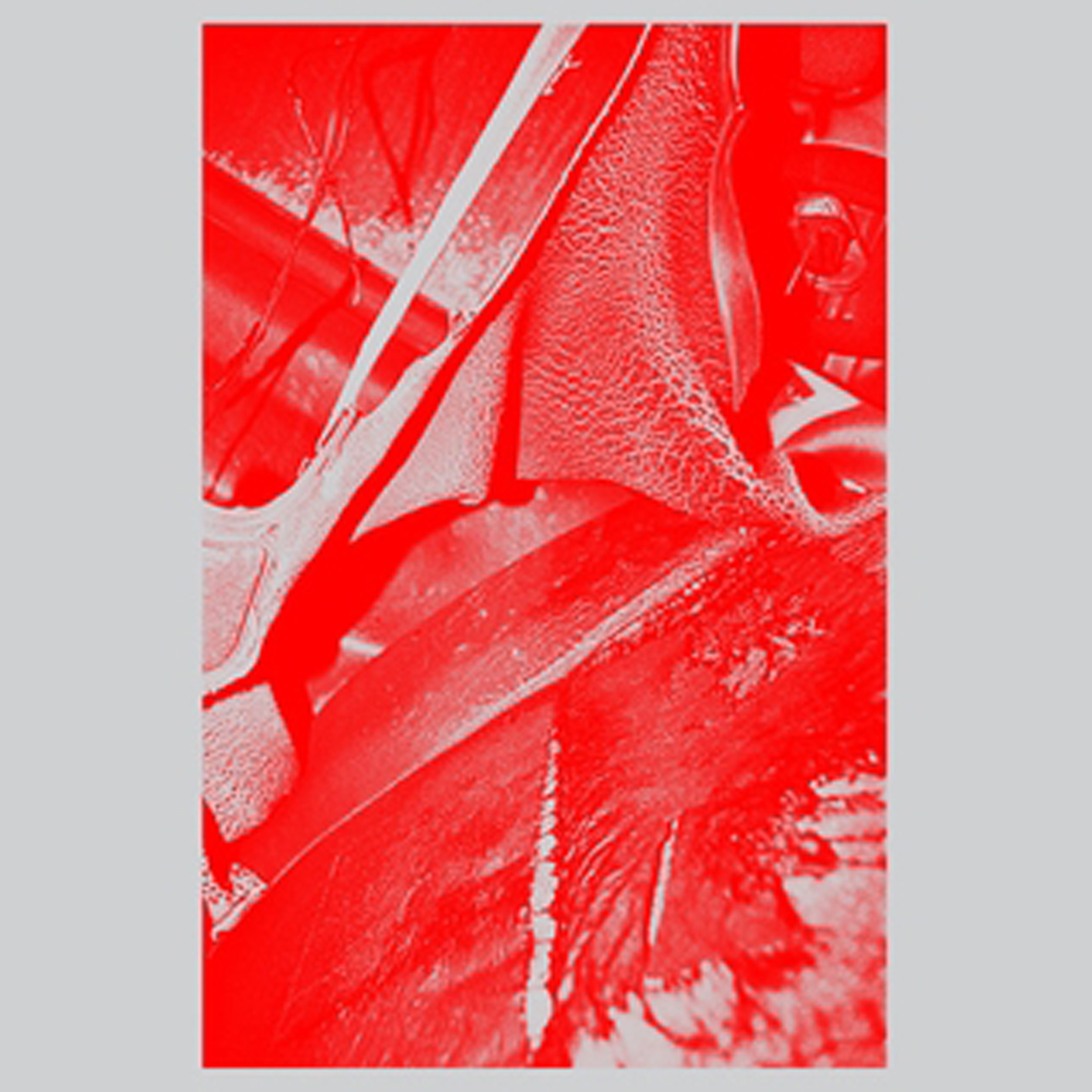Helm, "Olympic Mess"
 I tend to enjoy just about everything Luke Younger releases, but he has always been a bit of a tough guy to pin down stylistically, as he has recently seemed equally at home with abstract sound art, heavy noise, and his own unique strain of corroded, post-industrial exotica.  With Olympic Mess, he remains as compelling and eclectic as ever, but seems to have gotten significantly better at crafting a listenable and varied album that flows rather than overwhelms.  Also, he has a few welcome new tricks up his sleeve.  A few longtime fans might be disappointed that Mess leans more heavily upon shades of techno, drone, and ambient than dense, multilayered brutality, but I find Younger's quieter, more nuanced side to be quite an appealing one.
I tend to enjoy just about everything Luke Younger releases, but he has always been a bit of a tough guy to pin down stylistically, as he has recently seemed equally at home with abstract sound art, heavy noise, and his own unique strain of corroded, post-industrial exotica.  With Olympic Mess, he remains as compelling and eclectic as ever, but seems to have gotten significantly better at crafting a listenable and varied album that flows rather than overwhelms.  Also, he has a few welcome new tricks up his sleeve.  A few longtime fans might be disappointed that Mess leans more heavily upon shades of techno, drone, and ambient than dense, multilayered brutality, but I find Younger's quieter, more nuanced side to be quite an appealing one.
According to Younger, Olympic Mess was partially inspired by an interest in the hypnotic qualities of "loop-based industrial music, dub techno, and Balearic disco."  A former noise artist being seduced by beats is certainly not anything new, but that influence manifests itself in rather unusual and well-concealed ways throughout the album.  The "industrial" influence is not particularly hard to spot, however, as the warped and clattering introduction of "Don’t Lick The Jacket" quickly gives way to 8-minutes of heavy locked-groove throb and "abandoned factory" atmosphere ("I Exist In A Fog").  That strain is surprisingly short-lived, however: despite being one of the album's clear centerpieces, the dark and heavy "Fog" is actually a bit of an aberration.
Another minor surprise is that Olympic Mess is almost entirely beat-less, as Luke largely dispensed with dub techno’s thump and just mostly kept the shifting synthesizer pulse, giving many of these pieces a subtly disorienting, warped, and time-stretched feel.  Also, Helm still sounds like Helm, so an otherwise normal foray into dub techno like "Fluid Cloak" easily avoids feeling derivative by sounding like it is being played in a club filled with giant otherworldly crickets.  In fact, finding innovative ways to mangle techno into unrecognizability seems to be the primary theme of the album, as Younger returns to the form several more times with fresh variations.  "Sky Wax," for example, sounds slowed and drugged into hallucinatory abstraction, while the warm, skipping pulse of "The Evening In Reverse" falls apart midway, sounding simultaneously desolate and like it is being slowly chewed by something.  "Sky Wax" also boasts a straightforward groove of sorts, yet it sounds weirdly distant and hollow and is beset with strangled feedback.  Nothing is ever straight-forward with Helm.
The most compelling pieces, of course, are the ones that sound like nothing else on the album.  The most memorable is by far the alternately surreal and amusing "Strawberry Chapstick."  With no accompaniment other than a distant throb, a hushed voice shares what initially sounds like a voyeuristic window into an unsettling confession, but the speaker never actually divulges anything more frightening than a passion for bluegrass music.  The title piece also caught me off-guard, as it is both consistently melodic and rhythmic, content just to unspool a pleasingly burbling, lurching, and off-kilter theme for its entire duration.  Yet another stand-out is the album’s epic, the 12-minute "Outerzone 2015," resembling a warm drone piece that has been pushed into the background to make way for a curious fantasia of field recordings (dripping water, echoing and flanging metallic clattering, etc.).  Eventually a thumping four-on-the floor house beat emerges, but it sounds too distant and too subterranean to resemble anything normally found near a dancefloor.  Much later, it all gives way to an uncharacteristically lush oasis of dreamy drone before transforming yet again into a beautiful coda of woozy shimmer, bow scrapes, and backwards strums.
It is always difficult to ascribe any sort of evolution to Helm, as Luke’s discography has largely been a series of lateral moves rather than a linear path towards a clear vision, but Olympic Mess nevertheless boasts some significant fundamental changes to Helm’s aesthetic.  Aside from being much more melodic and playful than usual, Mess is dramatically less dense and "busy" than past Helm releases.  As far as I am concerned, those are neither welcome nor unwelcome changes (Younger actually excels at vibrant, multilayered density), but they certainly make his music more accessible and open up a lot of fertile new ground for future albums (you can only do so much with noise and texture alone).  Also, Luke has gotten much better at finishing his songs before they overstay their welcome.  If this album has a flaw, it is merely that the individual songs do not quite scale the frightening or innovative heights of Helm’s previous triumphs.  As an album, however, Olympic Mess is both extremely satisfying and marekedly different from everything that came before it, which easily secures it a place among Helm’s most essential releases.
 



